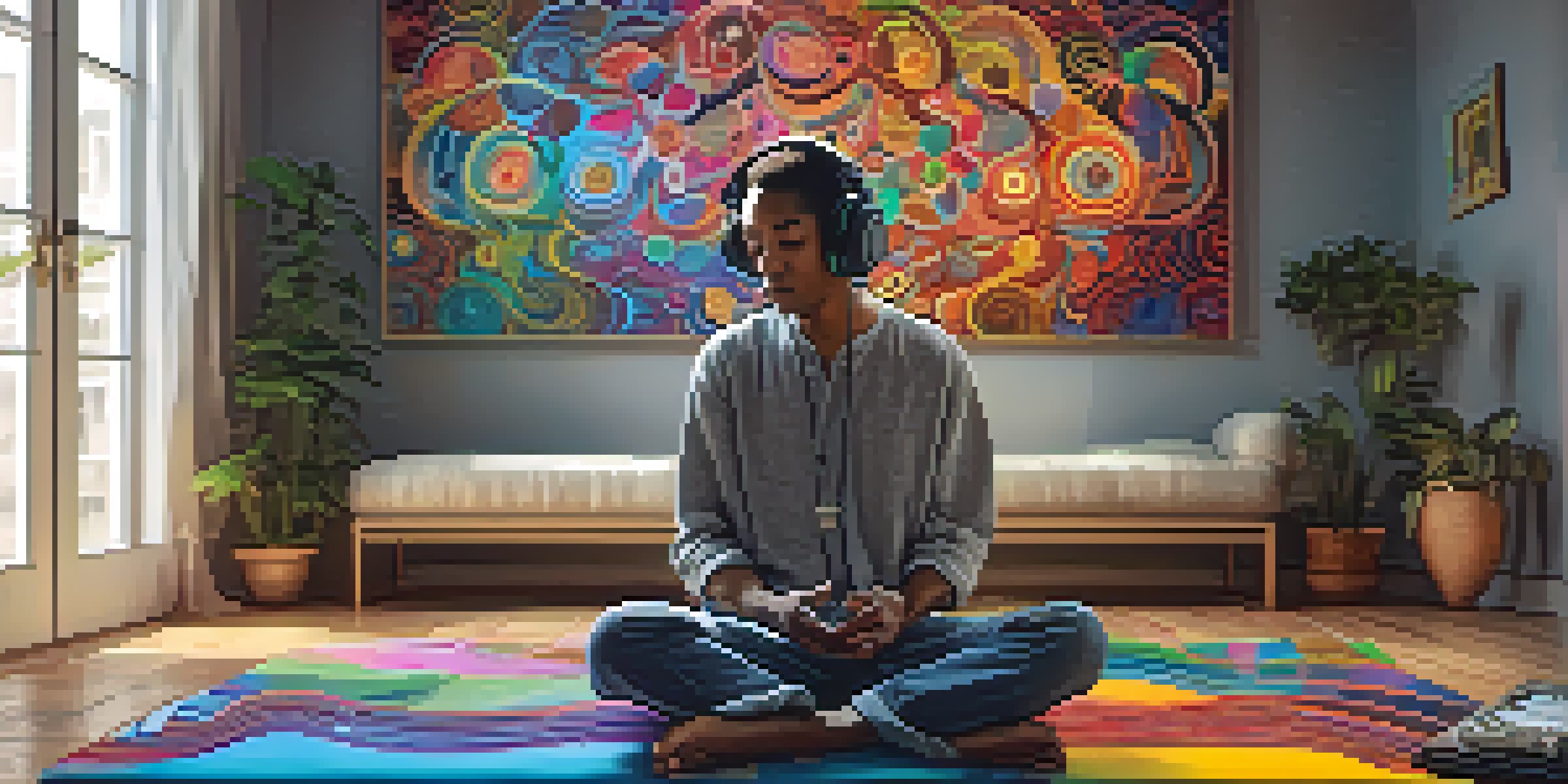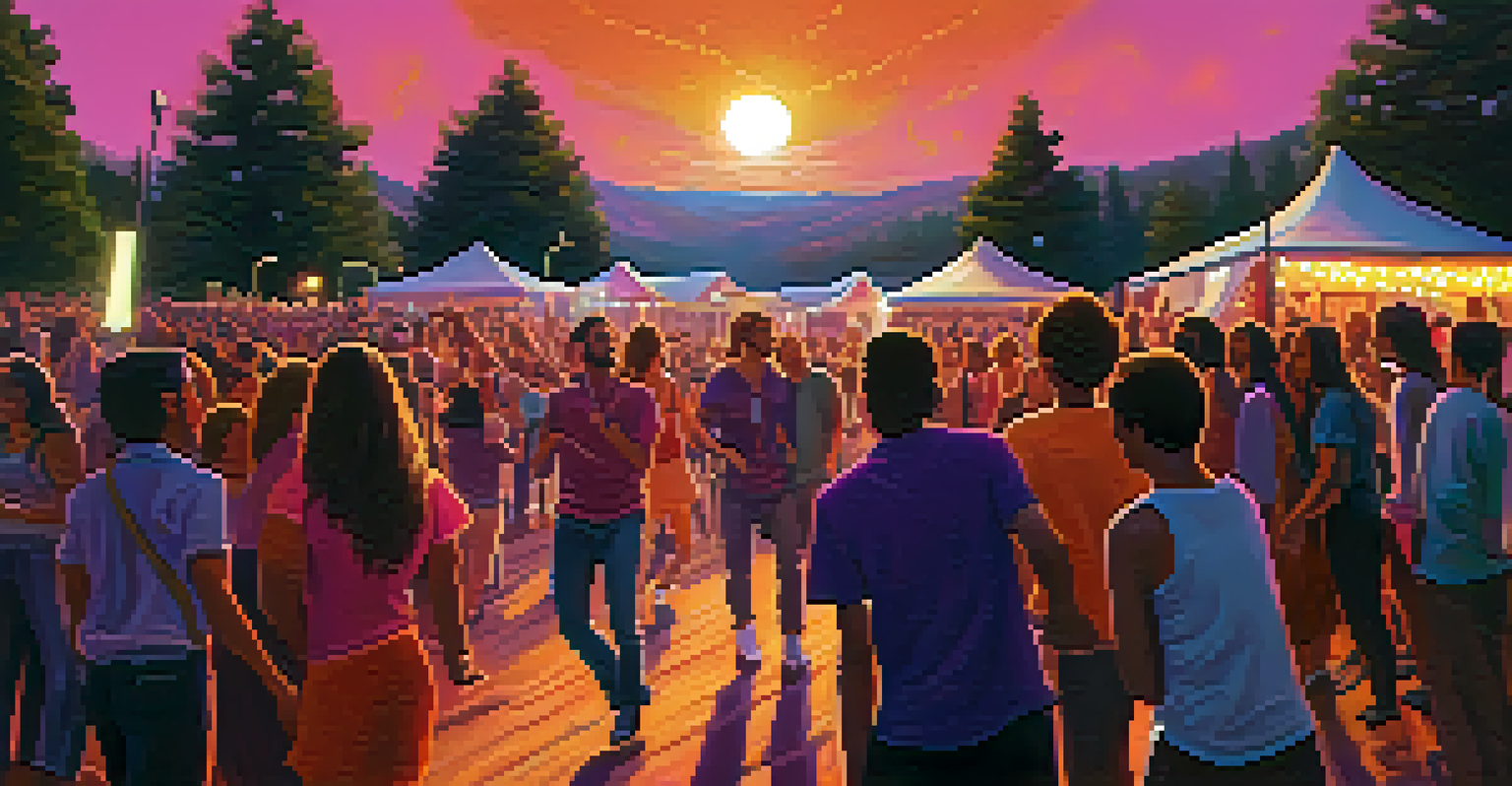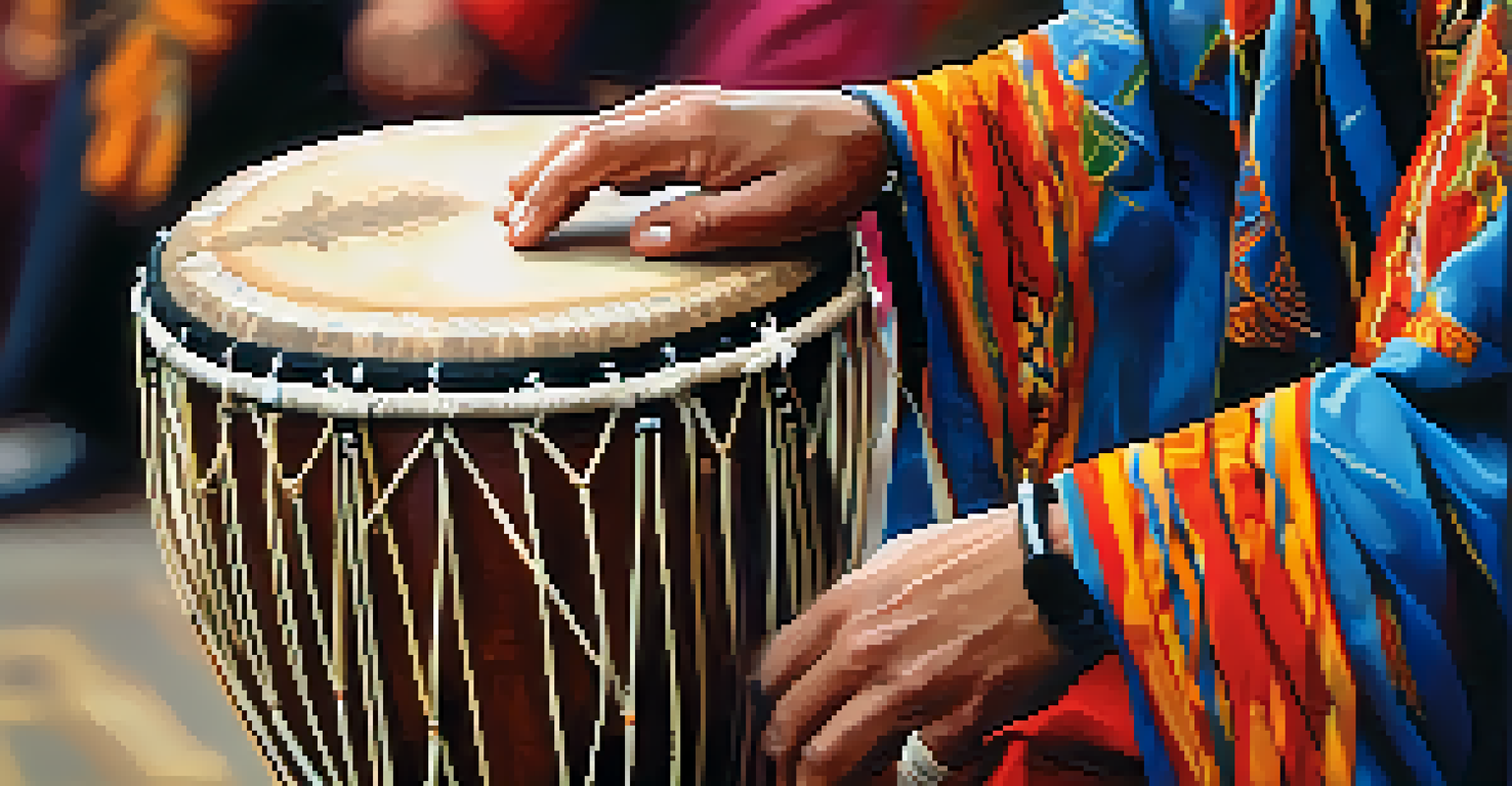The Ecstatic Experience: Music and Entheogenic States

Understanding Ecstatic Experiences in Music
Ecstatic experiences can be profoundly transformative, often triggered by music. When we listen to certain melodies or rhythms, our brains release chemicals that enhance feelings of joy and connection. This phenomenon is not just anecdotal; studies show that music can induce states similar to those achieved through meditation or spiritual practices.
Music can change the world because it can change people.
For many, music serves as a gateway to these ecstatic states, allowing them to transcend everyday consciousness. Think of a time when a song moved you to tears or filled you with exhilaration; that’s the power of music at work. It's as if the notes themselves create an emotional landscape, inviting listeners to explore uncharted territories within themselves.
Moreover, ecstatic experiences aren’t limited to solo listening; communal settings, like concerts or festivals, amplify this effect. The shared energy and collective vibrations can elevate personal feelings into a communal ecstasy, where individual experiences blend into a singular, euphoric moment.
The Role of Entheogens in Enhancing Music Experiences
Entheogens, substances that inspire mystical experiences, have been used across cultures for centuries. When combined with music, these substances can intensify emotional responses and deepen the ecstatic experience. Imagine how vibrant colors seem to dance and how sounds resonate on a different level during such moments.

Many indigenous cultures have long understood this connection, using music and entheogens together in ceremonies to foster spiritual growth. The rhythms and chants become vehicles for exploration, guiding participants through their inner landscapes. It's a powerful synergy that invites participants to experience the divine within themselves.
Music Transforms Emotional States
Ecstatic experiences induced by music can profoundly shift our emotions and consciousness, akin to meditation.
Additionally, the modern resurgence of interest in psychedelics has brought these ancient practices back into the limelight. Music festivals and retreats often incorporate both music and entheogens, creating immersive experiences that invite participants to connect with themselves and each other on a deeper level.
The Science Behind Music and Altered States
Research into the neuroscience of music reveals fascinating insights into how melodies affect our brains. When we listen to music we love, our brains release dopamine, the 'feel-good' neurotransmitter. This biological response is what makes music a universal language that transcends cultures and personal differences.
The power of music makes all the difference in the world.
Moreover, studies show that certain frequencies and rhythms can induce trance-like states, similar to those experienced during meditation or under the influence of entheogens. This suggests that our brains are wired to respond to music in ways that can bring about profound states of consciousness.
Understanding this connection can help us appreciate why music is such a vital part of rituals and celebrations across the globe. It’s not just about sound; it’s about harnessing an innate human response that can lead to deeper insights and community bonding.
Cultural Perspectives on Music and Ecstasy
Different cultures have long recognized the ecstatic potential of music, often intertwining it with their spiritual practices. For instance, in many African traditions, drumming is not just a form of entertainment but a means of connecting to the spirit world. The rhythm acts as a bridge, allowing participants to enter altered states of awareness.
Similarly, in Indian classical music, ragas are designed to evoke specific emotions and states of mind. Musicians often aim to create an experience that transcends the ordinary, using intricate patterns and improvisation to lead listeners on a journey. This cultural lens highlights how music can serve as a tool for spiritual exploration.
Entheogens Enhance Musical Journeys
The combination of entheogens and music has been used across cultures to deepen spiritual and ecstatic experiences.
These examples remind us that the ecstatic experience is not a modern phenomenon but rather a timeless aspect of human culture. By exploring global traditions, we can find inspiration in how music and spirituality have always been intertwined.
Personal Stories of Ecstatic Musical Experiences
Personal anecdotes often illustrate the powerful effects of music on our emotions. Many people recount moments when a particular song transported them to another time or place, evoking memories that felt both joyful and bittersweet. These stories highlight the unique ability of music to tap into our personal narratives.
Consider a musician who plays at a festival and describes the electrifying energy of the crowd. As each note reverberates, the audience experiences a collective ecstasy that transcends individual stories. In such moments, it’s as if everyone is part of a larger tapestry woven together by sound, creating a shared experience of joy and connection.
These personal accounts underscore the deeply emotional nature of music, reminding us that ecstasy isn’t just a theoretical concept but a lived reality for many. It's in these shared moments that we find the true power of music as a unifying force.
Creating Your Own Ecstatic Experience with Music
If you're interested in experiencing ecstasy through music, start by curating a playlist that resonates with you. Choose tracks that evoke strong emotions, whether joy, nostalgia, or introspection. Creating an environment that feels safe and inviting can enhance your experience, allowing you to fully immerse yourself in the music.
Consider incorporating movement into your listening sessions. Dancing or simply swaying to the rhythm can open up your body to the music, allowing you to feel each note more deeply. This physical engagement can help bridge the gap between mind and body, fostering a more profound ecstatic experience.
Cultural Richness in Music's Power
Various cultures have long recognized music's potential for ecstatic experiences, intertwining it with their spiritual practices.
Lastly, don’t hesitate to explore music in communal settings. Whether it’s a concert, a drum circle, or a music festival, being part of a group can amplify your feelings and create a shared sense of ecstasy. Remember, the journey into ecstatic experiences is personal, but it thrives in connection with others.
The Future of Music and Ecstatic Experiences
As we continue to explore the relationship between music and ecstatic experiences, new technologies are emerging that could enhance this connection. Virtual reality concerts and immersive soundscapes are just a glimpse into the future of musical experiences. These advancements may allow us to dive even deeper into altered states of consciousness.
Moreover, the ongoing research into the therapeutic benefits of music and entheogens suggests exciting possibilities. As more people seek holistic healing methods, the integration of music into therapeutic practices could pave the way for innovative approaches to mental health and well-being.

Ultimately, the future of music and ecstatic experiences holds great promise. By continuing to explore this synergy, we can unlock new avenues for self-expression, community bonding, and spiritual growth, enriching our lives in ways we have yet to imagine.